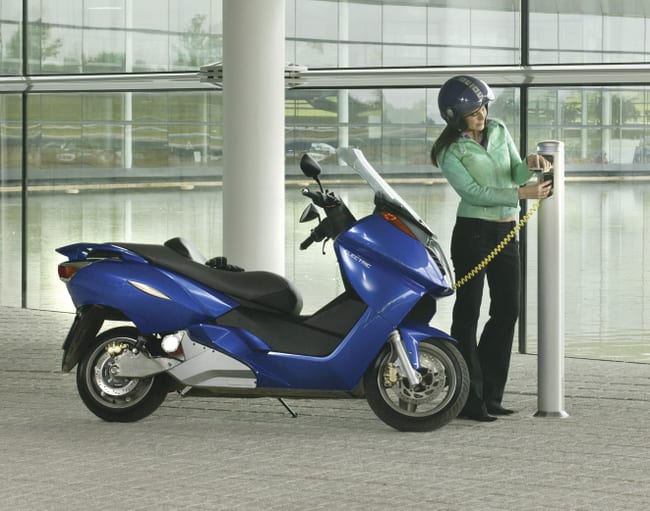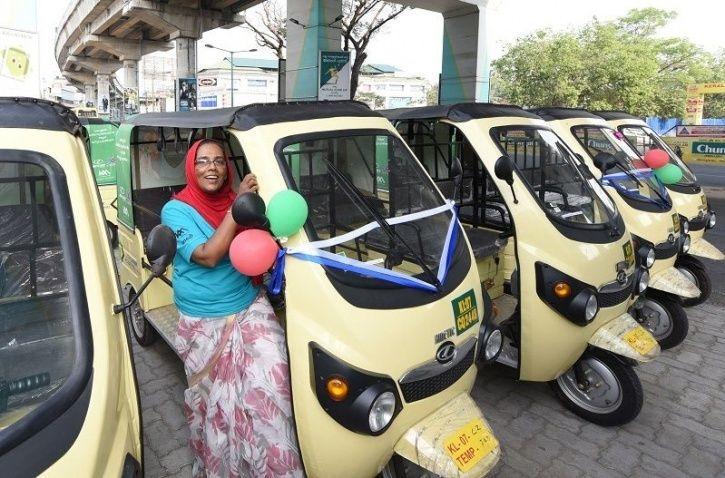India Will Sell Only Electric Two-Wheelers Vehicles After 2025
Anita - Jun 22, 2019

India is expected to mandate selling only electric three-wheelers from 2023 and electric two-wheelers with an engine capacity of up to 150cc from 2025.
- Delhi Is The World’s Most Polluted Capital City For Three Years In A Row
- Indian Farmers Install High-Tech, Night-Vision CCTV Cameras To Protect Themselves
- Looking For The Best Electric Bike In India 2021? Take A Look At These
The Indian government is attempting to boost electric vehicles adoption in the country and to support that goal, it will probably turn them into a mandate in specific categories, namely the two-wheelers with up to 150cc engine capacity and three-wheelers.

The expectations surface through a high-level government panel’s recent recommendation. According to TOI’s report, the recommendation probably results in the mandate to only sell electric three-wheel vehicles from April 2023, and electric two-wheel vehicles with an engine capacity of up to 150cc from April 2025. This action aims to reach the highest sales in these two segments in the automotive market in India with an annual revenue of more than 20 million units.
As reported, the panel has estimated the automotive industry’s current expenditure on BS-VI compliant vehicle production in these categories from next April. The transition window from four to six years is to let automotive manufacturers earn profit from these compliant vehicles. Also, the discussion suggested a similar mandate for delivery vehicles, city, and school buses.
The government panel included an inter-ministerial steering committee that is led by Amitabh Kant, Niti Aayog CEO. Besides the above-mentioned mandates, it also asked for doubling direct subsidy for three-wheel vehicles powered by electricity to Rs 20,000/kWh. If the proposal is passed, the new grant is expected to make the price range of these vehicles as affordable as the ones powered by fossil fuel.
In addition, in an attempt to boost the adoption of EVs, the panel will probably set up very strict norms in fuel efficiency for vehicle run by diesel and petrol, leading to the rise in these vehicles’ pricing, which prevents people from buying them.

To make this work, the Indian power ministry has been on the track of completing the framework for carbon credit trading mechanism to make the CAFE (corporate average fuel efficiency) norms more effective. Taking a similar step, the transport ministry of India is working on a plan for an EVs’ staggered transition in each category in 2030.
The automotive industry has received many different opinions about it. Some require more incentives to alter their current production infrastructure to match with EVs while some have already introduced their own EV offerings to the market with the introduction of EVs of big automotive manufacturers for the several following years.
However, another big issue is the lack of corresponding infrastructure in India. To handle it, recently, the government has targeted to set up the standards for charging stations for electric vehicles. Then, the expense for these stations will dramatically decline, which leads to the increase of these stations nationwide.
Featured Stories

Features - Jan 29, 2026
Permanently Deleting Your Instagram Account: A Complete Step-by-Step Tutorial

Features - Jul 01, 2025
What Are The Fastest Passenger Vehicles Ever Created?

Features - Jun 25, 2025
Japan Hydrogen Breakthrough: Scientists Crack the Clean Energy Code with...

ICT News - Jun 25, 2025
AI Intimidation Tactics: CEOs Turn Flawed Technology Into Employee Fear Machine

Review - Jun 25, 2025
Windows 11 Problems: Is Microsoft's "Best" OS Actually Getting Worse?

Features - Jun 22, 2025
Telegram Founder Pavel Durov Plans to Split $14 Billion Fortune Among 106 Children

ICT News - Jun 22, 2025
Neuralink Telepathy Chip Enables Quadriplegic Rob Greiner to Control Games with...

Features - Jun 21, 2025
This Over $100 Bottle Has Nothing But Fresh Air Inside

Features - Jun 18, 2025
Best Mobile VPN Apps for Gaming 2025: Complete Guide

Features - Jun 18, 2025
A Math Formula Tells Us How Long Everything Will Live
Read more

Mobile- Feb 17, 2026
Anticipating the Samsung Galaxy S26 and S26+: Key Rumors and Specs
The Samsung Galaxy S26 series is on the horizon, sparking excitement among tech enthusiasts.

ICT News- Feb 18, 2026
Google's Project Toscana: Elevating Pixel Face Unlock to Rival Apple's Face ID
As the smartphone landscape evolves, Google's push toward superior face unlock technology underscores its ambition to close the gap with Apple in user security and convenience.

Mobile- Feb 16, 2026
Xiaomi Launches Affordable Tracker to Compete with Apple's AirTag
For users tired of ecosystem lock-in or high prices, the Xiaomi Tag represents a compelling, no-frills option that delivers core functionality at a fraction of the cost.
Comments
Sort by Newest | Popular